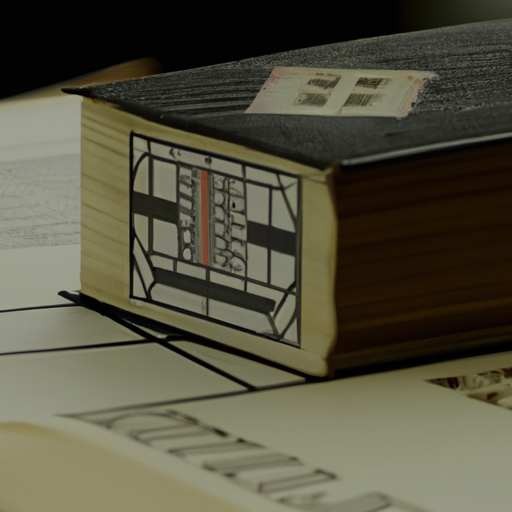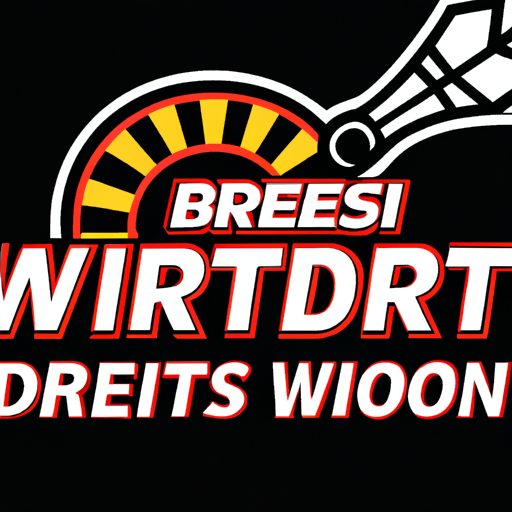
-
TopCasino Slots On-line Slots, Blackjack, Roulette, Betting & Gambling Critiques & Guides: TOC
- Introduction
- The Origins of Bookmaking
- The Evolution of Printing Technology
- The Role of the Gutenberg Press
- Early Bookmakers and Their Techniques
- The Rise of the Publishing Industry
- The Impact of Industrialization on Bookmaking
- The Emergence of Mass Market Paperbacks
- The Influence of Libraries on Bookmaking
- The Importance of Copyright Laws in Bookmaking
- The Growth of Self-Publishing and Print-on-Demand Technology
- The Impact of E-Books on the Bookmaking Industry
- The Future of Bookmaking in a Digital Age
- Famous Bookmakers Throughout History
- Controversies Surrounding Censorship and Banned Books
- How Bookmaking Has Shaped Culture and Society
- Q&A
- Conclusion
"From historical scribes to trendy publishers, tracing the evolution of bookmaking's profitable journey."
Introduction
Bookmaking has a long and fascinating historical past that dates again to historical times. From the earliest kinds of writing on clay tablets to the invention of the printing press, books have played an important function in human civilization. Over time, bookmaking has advanced into a multi-billion dollar trade that encompasses all the pieces from conventional publishing to e-books and audiobooks. In this article, we will discover the historical past of bookmaking and how it has change into one of the most profitable industries in the world today.
The Origins of Bookmaking
Bookmaking is a multi-billion dollar trade that has been around for hundreds of years. It has advanced from simple handwritten manuscripts to the digital age of e-books and audiobooks. The historical past of bookmaking is fascinating, and it all started with the invention of writing.
The origins of bookmaking may be traced again to historical civilizations akin to Egypt, Mesopotamia, and China. These civilizations developed writing systems that allowed them to record their historical past, legal guidelines, and spiritual beliefs on papyrus scrolls or clay tablets. These early kinds of books weren't mass-produced but had been as an alternative created by scribes who painstakingly copied every phrase by hand.
In historical Greece and Rome, books turned more widespread as they had been produced in bigger portions. The Greeks used parchment paper produced from animal skins, whereas the Romans used papyrus scrolls. Books throughout this time had been nonetheless expensive and only accessible to the rich.
Throughout the Center Ages, bookmaking turned more refined with the invention of the printing press by Johannes Gutenberg in 1440. This invention revolutionized e-book manufacturing as it allowed for mass manufacturing at a decrease price. The printing press additionally led to a rise in literacy rates as books turned more affordable and accessible to the basic public.
In the nineteenth century, developments in know-how led to additional enhancements in e-book manufacturing. Steam-powered presses allowed for even quicker printing speeds, whereas new binding methods made books more sturdy and aesthetically pleasing.
The twentieth century noticed another main shift in bookmaking with the rise of electronic media. The first e-e-book was created in 1971 by Michael Hart who digitized the United States Declaration of Independence. However, it wasn't until the growth of e-readers akin to Amazon's Kindle that e-books turned popular among customers.
As we speak, bookmaking is a multi-billion dollar trade that encompasses conventional print books, e-books, audiobooks, and different digital codecs. The trade has confronted challenges lately with the rise of online retailers akin to Amazon, which has disrupted conventional bookstores. However, the trade has additionally seen progress in audiobooks and e-books, which have change into more and more popular among customers.
Regardless of these modifications, the basic ideas of bookmaking stay the identical. Books are nonetheless created by authors who write stories or share their information on a specific topic. Publishers then work to supply and distribute these books to readers around the world.
In conclusion, the historical past of bookmaking is a testomony to human ingenuity and creativity. From simple handwritten manuscripts to digital e-books, the trade has advanced over time to fulfill the altering wants of customers. Whereas there have been challenges alongside the way, bookmaking stays a important half of our culture and society. As know-how continues to advance, it will be interesting to see how the trade adapts and evolves in the years to return.
The Evolution of Printing Technology
The historical past of bookmaking dates again to historical times when people used to jot down on papyrus scrolls. However, the evolution of printing know-how in the fifteenth century revolutionized the way books had been produced and distributed. The invention of the printing press by Johannes Gutenberg in 1440 marked a important milestone in the historical past of bookmaking.
Earlier than the printing press, books had been handwritten by scribes, which made them expensive and time-consuming to supply. Solely a few copies could possibly be made at a time, and they had been only accessible to the rich and educated elite. The printing press modified all that by making it potential to supply books shortly and cheaply.
The first printed e-book was the Gutenberg Bible, which was printed in 1455. It was a large endeavor that took a number of years to finish, but it set the standard for all future printed books. The Gutenberg Bible was printed utilizing movable type, which allowed printers to rearrange particular person letters and symbols into phrases and sentences.
Movable type made it potential to print a number of copies of a e-book shortly and precisely. It additionally allowed for more advanced layouts and illustrations, which made books more visually interesting. As a outcome, books turned more accessible to bizarre people, and literacy rates started to rise.
Over time, printing know-how continued to evolve. In the nineteenth century, steam-powered presses changed hand-operated ones, which additional elevated manufacturing velocity and effectivity. This led to an explosion in the quantity of books being printed.
By the early twentieth century, mass-market paperback books had change into popular. They had been cheaply produced and offered for as little as ten cents every. This made reading accessible to even more people than ever before.
In latest years, digital know-how has remodeled the e-book trade as soon as once more. E-books have change into more and more popular as more people switch from conventional paper books to digital ones. E-books are cheaper to supply than paper books since they don't require live supplies like paper and ink. They're additionally more handy since they are often downloaded immediately and read on a variety of devices.
Regardless of the rise of e-books, conventional paper books stay popular. In truth, sales of printed books have been growing lately, whilst e-e-book sales have declined. Many people nonetheless favor the tactile expertise of reading a live e-book, and there's one thing special about holding a e-book in your hands and turning its pages.
In conclusion, the evolution of printing know-how has played a important function in the historical past of bookmaking. From the invention of movable type to the rise of e-books, every new growth has made books more accessible to people around the world. As we speak, the e-book trade is a multi-billion dollar trade that continues to evolve and adapt to altering applied sciences and consumer preferences. Whether or not you favor conventional paper books or digital ones, there's no denying that books will continue to play an important function in our lives for a few years to return.
The Role of the Gutenberg Press
The historical past of bookmaking dates again to historical times when people used to jot down on papyrus scrolls. However, it was not until the invention of the printing press that bookmaking turned a widespread trade. The Gutenberg Press, invented by Johannes Gutenberg in the fifteenth century, revolutionized the way books had been produced and distributed.
Earlier than the Gutenberg Press, books had been handwritten by scribes, making them expensive and time-consuming to supply. Solely a choose few might afford to own books, and they had been usually reserved for spiritual or scholarly functions. The printing press modified all that. It allowed for mass manufacturing of books at a a lot decrease price, making them accessible to a wider viewers.
The Gutenberg Press used movable type, which meant that particular person letters could possibly be organized and rearranged to create totally different phrases and sentences. This made it potential to print a number of copies of the identical e-book shortly and effectively. The first e-book printed on the Gutenberg Press was the Bible, which was accomplished in 1455.
The influence of the Gutenberg Press on society can't be overstated. It made information more accessible and helped unfold concepts throughout Europe. It additionally paved the way for different kinds of printed materials akin to newspapers, magazines, and pamphlets.
As bookmaking turned more widespread, it additionally turned more worthwhile. Publishers started to focus on certain genres akin to fiction or non-fiction, and authors turned celebrities in their own right. By the nineteenth century, e-book publishing had change into a multi-billion dollar trade.
One of the most important developments in bookmaking throughout this time was the introduction of paperback books. These smaller, cheaper variations of hardcover books made reading even more accessible to people who could not afford expensive hardcovers.
In addition to technological developments like the printing press and paperback books, modifications in society additionally played a function in shaping the e-book trade. The rise of literacy rates meant that more people had been in a position to read and write, creating a bigger market for books. The progress of cities additionally contributed to the reputation of books, as people had more leisure time and access to libraries and bookstores.
As we speak, the e-book trade continues to evolve with the rise of digital know-how. E-books and audiobooks have change into more and more popular, permitting readers to access books on their telephones or tablets. Self-publishing has additionally change into more frequent, giving authors higher control over their work.
Regardless of these modifications, the core of the e-book trade stays the identical: offering readers with access to information and entertainment. From the Gutenberg Press to e-books, bookmaking has come a long way in its centuries-long historical past. It has played a important function in shaping society and will continue to take action for generations to return.
Early Bookmakers and Their Techniques
Bookmaking is a multi-billion dollar trade that has been around for hundreds of years. It has advanced from simple methods to advanced systems that contain know-how and knowledge evaluation. The historical past of bookmaking is fascinating, and it all started with early bookmakers and their methods.
Early bookmakers had been people who would take bets on numerous occasions, akin to horse races or sporting occasions. They would set the odds based on their information of the occasion and the contributors concerned. These bookmakers would then take a commission on the bets positioned, which was how they made their cash.
One of the earliest kinds of bookmaking was done by hand. Bookmakers would use pen and paper to record bets and calculate odds. This method was time-consuming and susceptible to errors, but it was the only way to do it at the time.
As know-how superior, so did bookmaking methods. In the nineteenth century, telegraph machines had been used to transmit details about occasions in real-time. This allowed bookmakers to regulate their odds shortly based on new info.
The introduction of computer systems in the twentieth century revolutionized bookmaking. Computer systems allowed for quicker calculations and more correct odds-making. Bookmakers might now analyze huge quantities of knowledge to make knowledgeable selections about setting odds.
In addition to technological developments, legal modifications additionally played a important function in the evolution of bookmaking. In many countries, playing was unlawful until comparatively recently. However, as legal guidelines modified, bookmaking turned more mainstream.
As we speak, bookmaking is a highly regulated trade in lots of countries. Bookmakers should adhere to strict guidelines and rules concerning fair play and accountable playing practices.
Regardless of these rules, there are nonetheless some unscrupulous people who have interaction in unlawful bookmaking actions. These people usually function outdoors of the regulation and may be difficult to track down.
Total, the historical past of bookmaking is one of evolution and adaptation. From simple pen-and-paper strategies to advanced computer systems, bookmakers have always found ways to remain forward of the game. As know-how continues to advance, it will be interesting to see how bookmaking evolves in the future.
The Rise of the Publishing Industry
The publishing trade has come a long way since the invention of the printing press in the fifteenth century. The rise of bookmaking may be traced again to the early days of printing, when books had been produced by hand and offered at high prices. However, with the advent of mass manufacturing methods, books turned more affordable and accessible to a wider viewers.
The first main breakthrough in bookmaking got here in the form of movable type, which allowed printers to supply a number of copies of a single textual content. This innovation was pioneered by Johannes Gutenberg in the mid-fifteenth century and revolutionized the way books had been made. With movable type, printers might produce books quicker and more effectively than ever before.
As printing know-how continued to evolve, so did the publishing trade. In the nineteenth century, steam-powered presses had been launched, which additional elevated manufacturing velocity and effectivity. This led to a growth in e-book manufacturing and distribution, as publishers had been in a position to print massive portions of books at decrease costs.
The rise of industrialization additionally had a important influence on bookmaking. With the progress of cities and urbanization, there was a rise in literacy rates and demand for books. Publishers started to cater to this rising market by producing books that had been more affordable and accessible.
One notable instance is Penguin Books, which was based in 1935 with the goal of making quality literature accessible to everybody at an affordable price. Penguin's success paved the way for different publishers to observe suit, resulting in a proliferation of paperback books that had been each cheap and extensively accessible.
The introduction of digital know-how in the late twentieth century marked another main shift in bookmaking. E-books and digital publishing platforms like Amazon's Kindle have remodeled the way we read and devour books. Whereas some feared that digital know-how would spell doom for conventional publishing, it has truly opened up new opportunities for authors and publishers alike.
As we speak, bookmaking is a multi-billion dollar trade that encompasses all the pieces from conventional print publishing to e-books, audiobooks, and self-publishing platforms. Whereas the trade has confronted its fair share of challenges over the years, it has confirmed to be resilient and adaptable in the face of change.
Regardless of the rise of digital know-how, there may be nonetheless a robust demand for live books. In truth, sales of print books have been on the rise lately, with many readers citing a choice for the tactile expertise of reading a live e-book.
In conclusion, the historical past of bookmaking is a testomony to human ingenuity and innovation. From Gutenberg's movable type to Amazon's Kindle, every new growth has caused new opportunities and challenges for publishers and authors alike. As we glance to the future, it will be interesting to see how bookmaking continues to evolve and adapt to altering applied sciences and consumer preferences.
The Impact of Industrialization on Bookmaking
The historical past of bookmaking is a fascinating one, with its roots courting again to historical times. However, it wasn't until the Industrial Revolution that bookmaking turned a multi-billion dollar trade.
Previous to the Industrial Revolution, books had been made by hand. Scribes would painstakingly copy texts onto parchment or vellum, and then bind them collectively into a e-book. This process was time-consuming and expensive, making books a luxury merchandise that only the rich might afford.
The invention of the printing press in the fifteenth century modified all the pieces. Instantly, books could possibly be produced a lot more shortly and cheaply than ever before. The printing press allowed for mass manufacturing of books, making them more extensively accessible to the basic public.
However, it wasn't until the Industrial Revolution that bookmaking actually turned a main trade. The growth of new applied sciences akin to steam-powered presses and paper-making machines allowed for even higher effectivity in e-book manufacturing.
One of the key figures in the industrialization of bookmaking was Richard M. Hoe. In 1843, Hoe invented the rotary printing press, which might print as much as 8,000 sheets per hour. This revolutionized the printing trade and made it potential to supply massive portions of books at a a lot quicker rate than ever before.
One other important growth throughout this time was the rise of publishing homes. These companies had been in a position to take benefit of new applied sciences and economies of scale to supply books more effectively and at decrease price. They additionally played an important function in marketing and distributing books to a wider viewers.
As e-book manufacturing turned more environment friendly and price-efficient, prices started to drop. This made books more accessible to people from all walks of life, not simply the rich elite. It additionally led to an explosion in literacy rates as more people had access to reading supplies.
The influence of industrialization on bookmaking was not with out its challenges, nonetheless. As manufacturing elevated, so did considerations about quality control. Some critics argued that the mass manufacturing of books was resulting in a decline in the quality of literature.
Regardless of these considerations, the bookmaking trade continued to develop and evolve. In the twentieth century, new applied sciences akin to offset printing and digital printing additional revolutionized the trade. As we speak, bookmaking is a multi-billion dollar trade that continues to adapt to altering applied sciences and consumer preferences.
In conclusion, the influence of industrialization on bookmaking can't be overstated. The growth of new applied sciences and economies of scale allowed for higher effectivity in e-book manufacturing, making books more extensively accessible and affordable than ever before. Whereas there have been actually challenges alongside the way, the finish outcome was a thriving trade that has had a profound influence on society as a entire.
The Emergence of Mass Market Paperbacks
The historical past of bookmaking is a fascinating one, with its roots courting again to historical times. From the earliest kinds of writing on clay tablets to the invention of the printing press, books have played an important function in human historical past. However, it wasn't until the emergence of mass market paperbacks that bookmaking actually turned a multi-billion dollar trade.
The first mass market paperbacks had been launched in the early twentieth century. These books had been small and cheaply produced, making them accessible to a wider viewers than ever before. They had been additionally moveable, which made them ideal for troopers throughout World Battle II. In truth, many publishers printed special editions of popular titles particularly for troopers to hold with them into battle.
One of the most profitable publishers of mass market paperbacks was Penguin Books. Based in 1935 by Allen Lane, Penguin revolutionized the publishing trade by producing high-quality books at affordable prices. Their first batch of ten titles included works by Ernest Hemingway and Agatha Christie, and they shortly turned bestsellers.
Penguin's success impressed different publishers to enter the market, and quickly there have been dozens of companies producing mass market paperbacks. These books had been offered in drugstores, newsstands, and different non-conventional shops, making them accessible to people who may not have in any other case had access to books.
The reputation of mass market paperbacks continued to develop all through the Nineteen Fifties and 60s. Publishers started releasing new titles in paperback format concurrently with hardcover editions, which helped to additional increase sales. By the finish of the Sixties, paperback sales had surpassed these of hardcovers for the first time ever.
One issue that contributed to the success of mass market paperbacks was their cover art. Publishers realized that eye-catching covers might assist promote books, in order that they started hiring gifted artists to create designs that will grab readers' consideration. Many iconic covers from this period are nonetheless recognizable today, akin to the psychedelic designs used on science fiction novels.
One other issue was the rise of style fiction. Mass market paperbacks had been notably popular in genres like romance, thriller, and science fiction. These books had been usually serialized, with readers eagerly anticipating the next installment in a series. This helped to create a loyal fan base for a lot of authors and contributed to the progress of these genres.
As we speak, mass market paperbacks are nonetheless an important half of the publishing trade. Whereas e-books and audiobooks have change into more and more popular lately, there may be nonetheless a demand for live books that may be held and read. Many publishers continue to launch new titles in paperback format, and classic titles from a long time previous are nonetheless extensively accessible.
The emergence of mass market paperbacks modified the e-book trade endlessly. By making books more affordable and accessible to a wider viewers, publishers had been in a position to create a new market for their merchandise. As we speak, bookmaking is a multi-billion dollar trade that continues to evolve with new applied sciences and altering reader preferences. However, it all started with these small, cheaply produced paperbacks that captured readers' imaginations and modified the way we take into consideration books.
The Affect of Libraries on Bookmaking
The historical past of bookmaking is a fascinating one, with its roots courting again to historical times. From the earliest kinds of writing on clay tablets to the invention of the printing press, books have played a essential function in human civilization. As we speak, bookmaking has change into a multi-billion dollar trade, with millions of books being printed yearly. In this article, we will discover the affect of libraries on bookmaking and how they've contributed to its progress over the years.
Libraries have been around for hundreds of years and have played a necessary function in preserving information and culture. The first identified library was established in historical Egypt around 300 BCE, and it contained 1000's of papyrus scrolls. Over time, libraries unfold all through the world, with some of the most famous ones being the Library of Alexandria in Egypt and the Library of Congress in Washington D.C.
As libraries grew in reputation, so did the demand for books. In the early days, books had been handwritten by scribes and had been extremely expensive to supply. However, with the invention of the printing press in 1440 by Johannes Gutenberg, books turned more accessible to people. This led to an explosion in e-book manufacturing and distribution.
The rise of libraries additionally had a important influence on bookmaking as a result of they offered a centralized location for people to access books. Libraries allowed people who couldn't afford to purchase books to borrow them as an alternative. This made reading more accessible to everybody and helped promote literacy.
In addition to offering access to books, libraries additionally played a essential function in preserving them. Librarians had been answerable for cataloging and organizing books in order that they could possibly be easily found by patrons. They additionally took measures to guard books from harm or theft.
As know-how superior, so did libraries' potential to protect and share information. The advent of digital know-how allowed libraries to digitize their collections and make them accessible online. This has made it potential for people throughout the world to access uncommon or out-of-print books that they'd not have been capable of finding in any other case.
The affect of libraries on bookmaking may also be seen in the rise of self-publishing. In the previous, authors needed to go by conventional publishing channels to get their books into libraries and bookstores. However, with the advent of self-publishing platforms like Amazon's Kindle Direct Publishing, authors can now publish their books independently and make them accessible to readers worldwide.
Libraries have additionally played a function in selling variety in bookmaking. They have made a aware effort to include books by authors from numerous backgrounds and views. This has helped promote inclusivity and has given a platform to voices that will have been missed in the previous.
In conclusion, the affect of libraries on bookmaking can't be overstated. They have played a essential function in preserving information and culture, making books more accessible to people, and selling variety in bookmaking. As we transfer ahead into the digital age, it will be interesting to see how libraries continue to shape the future of bookmaking.
The Significance of Copyright Legal guidelines in Bookmaking
Bookmaking has been around for hundreds of years, with the earliest identified books courting again to historical Egypt and Mesopotamia. However, it wasn't until the invention of the printing press in the fifteenth century that bookmaking turned a widespread trade. As we speak, bookmaking is a multi-billion dollar trade that plays a essential function in our society.
One of the most important facets of bookmaking is copyright regulation. Copyright legal guidelines shield the rights of authors and publishers by stopping others from copying or distributing their work with out permission. This ensures that creators are pretty compensated for their efforts and encourages them to continue producing new works.
The historical past of copyright regulation may be traced again to historical Greece and Rome, the place legal guidelines had been put in place to guard the rights of playwrights and poets. However, it wasn't until the sixteenth century that formal copyright legal guidelines had been established in England. The Statute of Anne, handed in 1710, was one of the first trendy copyright legal guidelines and served as a mannequin for comparable legal guidelines in different countries.
In the United States, copyright regulation was established in the Structure itself. Article I, Part 8 grants Congress the power to "promote the Progress of Science and helpful Arts, by securing for limited Instances to Authors and Inventors the exclusive Proper to their respective Writings and Discoveries." The first federal copyright regulation was handed in 1790 and has been revised a number of times since then.
Copyright regulation has played a essential function in bookmaking all through historical past. In the early days of printing, there have been no formal copyright legal guidelines, which led to rampant piracy. Publishers would usually print unauthorized copies of popular works and promote them at a decrease price than the original writer. This practice was so frequent that it turned often called "e-book piracy."
As copyright legal guidelines turned more established, e-book piracy turned much less frequent. However, new challenges arose with the advent of digital know-how. The ease with which digital information may be copied and distributed has made it more difficult to implement copyright legal guidelines. This has led to a rise in online piracy, which has had a important influence on the e-book trade.
Regardless of these challenges, copyright regulation stays a necessary half of bookmaking. It ensures that authors and publishers are pretty compensated for their work and encourages them to continue producing new works. Without copyright safety, many creators could be unable to make a residing from their work, which would have a unfavorable influence on the whole trade.
In addition to defending the rights of creators, copyright regulation additionally plays a function in selling innovation and creativity. By offering creators with exclusive rights to their work, copyright regulation encourages them to take dangers and discover new concepts. This results in the growth of new genres and types of writing, which retains the trade recent and exciting.
In conclusion, copyright regulation is a necessary half of bookmaking. It protects the rights of creators, promotes innovation and creativity, and ensures that the trade stays worthwhile. Whereas there are challenges associated with imposing copyright legal guidelines in the digital age, it is important that we continue to support these legal guidelines in order to keep up a thriving e-book trade.
The Development of Self-Publishing and Print-on-Demand Technology
The world of bookmaking has come a long way since the days of monks laboriously copying manuscripts by hand. With the advent of the printing press in the fifteenth century, books turned more extensively accessible and affordable. However, it wasn't until the nineteenth century that e-book publishing actually took off as an trade.
In the early days of e-book publishing, authors needed to depend on publishers to print and distribute their work. This meant that only a choose few writers had been in a position to get their books into the hands of readers. However, with the progress of self-publishing and print-on-demand know-how, anyone can now change into a printed writer.
Self-publishing has been around for hundreds of years, but it wasn't until the twenty first century that it really took off. With the rise of e-books and online marketplaces like Amazon, authors now not have to go by conventional publishers to get their work out there. They can simply add their manuscript to a platform like Kindle Direct Publishing and have it accessible for purchase inside hours.
Print-on-demand know-how has additionally revolutionized the e-book trade. As an alternative of having to print 1000's of copies of a e-book upfront, publishers can now print books as they're ordered. Because of this there isn't any want for big warehouses full of unsold books, which just isn't only more price-efficient but additionally better for the surroundings.
The progress of self-publishing and print-on-demand know-how has additionally led to a rise in variety in the sorts of books being printed. Conventional publishers are likely to deal with mainstream genres like romance and thriller, but self-printed authors are free to discover area of interest matters that will not have mass enchantment but nonetheless have a devoted viewers.
After all, there are downsides to self-publishing as well. Without the backing of a conventional writer, authors are answerable for all facets of their e-book's manufacturing, from enhancing to cover design. This may be overwhelming for some writers who simply wish to deal with their craft.
Moreover, self-printed books usually lack the marketing and distribution support that conventional publishers provide. Whereas online marketplaces like Amazon might help authors attain a wider viewers, it can nonetheless be difficult to get seen in a sea of millions of different books.
Regardless of these challenges, self-publishing and print-on-demand know-how have opened up new opportunities for writers and readers alike. The e-book trade is now not managed by a choose few publishers, but somewhat by anyone with a story to inform.
As the trade continues to evolve, it will be interesting to see how conventional publishers adapt to this new panorama. Will they continue to deal with mainstream genres or will they start taking more dangers on area of interest matters? Solely time will inform.
In the meantime, self-publishing and print-on-demand know-how are here to remain. They have democratized the e-book trade and given a voice to writers who could have in any other case gone unheard. And with the continued progress of e-books and online marketplaces, it's clear that the future of bookmaking is bright.
The Impact of E-Books on the Bookmaking Industry
The advent of e-books has revolutionized the bookmaking trade, remodeling it from a conventional print-based business to a digital one. The influence of e-books on the bookmaking trade has been important, with many publishers and booksellers embracing this new know-how to succeed in a wider viewers.
The historical past of bookmaking dates again to historical times when books had been handwritten on papyrus scrolls or animal skins. The invention of the printing press in the fifteenth century marked a important milestone in the historical past of bookmaking, making it potential to supply books in massive portions at a decrease price. This led to a rise in literacy rates and the unfold of information throughout Europe.
Over time, bookmaking advanced into a multi-billion dollar trade, with publishers and booksellers competing for market share. However, the rise of digital know-how in the late twentieth century disrupted this conventional mannequin, resulting in the emergence of e-books.
E-books are digital variations of printed books that may be read on electronic devices akin to smartphones, tablets, and e-readers. They supply a number of advantages over conventional print books, including portability, comfort, and accessibility. E-books may be downloaded immediately from online shops akin to Amazon or Barnes & Noble, making them available to readers worldwide.
The influence of e-books on the bookmaking trade has been each optimistic and unfavorable. On one hand, e-books have opened up new markets for publishers and authors by making it easier to succeed in readers globally. E-books have additionally made reading more accessible to people with visible impairments or different disabilities that make it difficult to read printed books.
On the different hand, e-books have disrupted conventional publishing fashions by permitting self-publishing authors to bypass conventional gatekeepers akin to literary brokers and publishers. This has led to an inflow of low-quality content material flooding the market, making it more durable for readers to search out quality literature.
Regardless of these challenges, many publishers and booksellers have embraced e-books as a way to remain aggressive in the digital age. Some have even developed their own e-e-book platforms, akin to Amazon's Kindle and Barnes & Noble's Nook, to supply readers a more seamless reading expertise.
The rise of e-books has additionally led to the growth of new business fashions, akin to subscription services like Scribd and Kindle Limitless. These services allow readers to access a huge library of e-books for a monthly fee, making it more affordable for avid readers to devour literature.
In conclusion, the influence of e-books on the bookmaking trade has been important, remodeling it from a conventional print-based business to a digital one. Whereas there are challenges associated with this new know-how, publishers and booksellers have embraced it as a way to succeed in a wider viewers and keep aggressive in the digital age. As know-how continues to evolve, it will be interesting to see how the bookmaking trade adapts and innovates to fulfill the altering wants of readers worldwide.
The Future of Bookmaking in a Digital Age
The Future of Bookmaking in a Digital Age
The bookmaking trade has come a long way since its inception. From the early days of hand-written manuscripts to the printing press, and now to digital publishing, the trade has undergone important modifications over the years. With the rise of know-how, bookmaking has change into more accessible than ever before. In this article, we will discover how bookmaking has advanced over time and what the future holds for this multi-billion dollar trade.
The historical past of bookmaking dates again to historical times when books had been written by hand on papyrus scrolls. The invention of the printing press in the fifteenth century revolutionized the trade, making it potential to supply books on a massive scale. This led to a rise in literacy rates and a surge in demand for books.
In latest years, digital know-how has remodeled the bookmaking trade as soon as once more. E-books have change into more and more popular, with many readers choosing digital copies over live ones. This shift in the direction of digital publishing has had a important influence on conventional publishers and booksellers.
One of the biggest advantages of e-books is their accessibility. Readers can purchase and download books immediately from wherever in the world. This has opened up new markets for publishers and made it easier for authors to succeed in a international viewers.
One other benefit of e-books is their affordability. Digital copies are sometimes cheaper than live ones, making them more accessible to readers who could not be capable to afford conventional books.
However, there are additionally some drawbacks to digital publishing. One of the biggest considerations is piracy. With digital copies being so easy to share online, it may be difficult for publishers and authors to guard their work from copyright infringement.
Regardless of these challenges, many specialists believe that digital publishing is here to remain. As know-how continues to advance, we will count on even more improvements in the bookmaking trade.
One space the place we're already seeing important progress is in self-publishing. With platforms like Amazon's Kindle Direct Publishing, authors can now publish their own books with out the want for a conventional writer. This has opened up new opportunities for aspiring writers and has given readers access to a wider range of content material.
One other pattern that's more likely to continue is the rise of audiobooks. With busy existence and long commutes, many people are turning to audiobooks as a handy way to devour literature. This has led to a rise in demand for audio variations of books, with many publishers now offering this option alongside conventional print and e-e-book codecs.
In conclusion, the bookmaking trade has come a long way since its early days. From hand-written manuscripts to digital publishing, the trade has undergone important modifications over the years. Whereas there are challenges associated with digital publishing, it additionally presents new opportunities for publishers, authors, and readers alike. As know-how continues to advance, we will count on even more improvements in the bookmaking trade in the years to return.
Well-known Bookmakers All through History
Bookmaking has been around for hundreds of years, and it has advanced into a multi-billion dollar trade. All through historical past, there have been many famous bookmakers who've made important contributions to the trade.
One of the most famous bookmakers in historical past is William Hill. He started his career as a postal clerk but quickly realized that he had a talent for playing. In 1934, he opened his first betting shop in London, which was the starting of what would change into one of the largest bookmaking companies in the world.
One other famous bookmaker is Victor Chandler, who took over his father's business in 1975. He remodeled the firm from a small operation into a international model by increasing into new markets and offering revolutionary merchandise akin to online betting.
In the United States, one of the most famous bookmakers is Jimmy Vaccaro. He started his career in Las Vegas in the Seventies and shortly turned identified for his experience in setting odds for sports occasions. He additionally launched many new betting options to the trade, akin to proposition bets on particular person gamblers' performances.
In latest years, there have been many new entrants into the bookmaking trade, including online sportsbooks and mobile apps. These companies have disrupted conventional brick-and-mortar bookmakers by offering more comfort and better odds to customers.
Regardless of these modifications, conventional bookmakers continue to thrive. In truth, some of them have even expanded their operations to include online betting platforms. For instance, William Hill now offers an online sportsbook that permits customers to place bets from wherever in the world.
The success of bookmaking may be attributed to a number of components. First and foremost, people love to gamble. Whether or not it's on sports occasions or casino video games, there will always be a demand for betting opportunities.
Moreover, advances in know-how have made it easier than ever before to place bets. With simply a few clicks on a computer or smartphone, anyone can place a bet on their favourite team or player.
Lastly, the legalization of sports betting in lots of states has opened up new markets for bookmakers. As more states legalize sports betting, the trade is anticipated to continue rising at a fast tempo.
In conclusion, bookmaking has a long and storied historical past that has led to its current status as a multi-billion dollar trade. Well-known bookmakers akin to William Hill, Victor Chandler, and Jimmy Vaccaro have made important contributions to the trade, whereas new entrants akin to online sportsbooks and mobile apps have disrupted conventional brick-and-mortar bookmakers. Regardless of these modifications, the demand for betting opportunities stays robust, and the trade is anticipated to continue rising in the coming years.
Controversies Surrounding Censorship and Banned Books
Bookmaking has been around for hundreds of years, and it has advanced into a multi-billion dollar trade. However, with the rise of e-book censorship and banned books, the trade has confronted its fair share of controversies.
The historical past of e-book censorship dates again to historical times when rulers would ban certain books that they deemed dangerous or subversive. In medieval Europe, the Catholic Church had an Index Librorum Prohibitorum (List of Prohibited Books) that included works by Galileo, Voltaire, and even the Bible in some cases.
In the United States, e-book censorship turned a hot subject in the twentieth century. The first main case was in 1929 when James Joyce's Ulysses was banned for obscenity. The ban was lifted in 1933 after a court docket ruling that declared it not obscene.
Throughout the Chilly Battle period, books that had been vital of communism or sympathetic to socialist concepts had been usually banned or censored. This led to a rise in underground publishing and distribution of these books.
In latest years, e-book censorship has change into more prevalent with the rise of social media and online platforms. In 2018, Amazon eliminated a number of books from its platform that promoted conversion remedy for LGBTQ+ people. This sparked a debate about whether or not or not companies like Amazon ought to have the power to censor what people can read.
Banned books have additionally been a controversial subject in the bookmaking trade. The American Library Affiliation (ALA) compiles an annual checklist of the most continuously challenged books in libraries and faculties throughout the nation. These challenges come from mother and father, lecturers, and group members who object to certain content material in these books.
Some of the most continuously challenged books include To Kill a Mockingbird by Harper Lee, The Catcher in the Rye by J.D. Salinger, and Harry Potter by J.K. Rowling. These challenges usually center around themes akin to sexuality, violence, and spiritual beliefs.
Regardless of the controversies surrounding e-book censorship and banned books, the bookmaking trade continues to thrive. In truth, it has change into a multi-billion dollar trade that features conventional publishing homes, self-publishing platforms, and online retailers.
The rise of e-books and audiobooks has additionally contributed to the progress of the trade. These codecs have made reading more accessible to people who could not have had access to live books before.
However, the trade just isn't with out its challenges. The rise of online piracy has led to a loss of revenue for publishers and authors. This has forced them to search out new ways to guard their mental property and make sure that they're pretty compensated for their work.
In conclusion, the historical past of bookmaking is a long and advanced one which has been formed by controversies surrounding censorship and banned books. Regardless of these challenges, the trade continues to develop and evolve with new applied sciences and distribution strategies. As readers, it is important for us to bear in mind of these points and advocate for our right to read what we select.
How Bookmaking Has Formed Tradition and Society
Bookmaking has been around for hundreds of years, and it has played a important function in shaping culture and society. From the earliest kinds of writing to the trendy-day publishing trade, books have been a supply of information, entertainment, and inspiration for people throughout the world.
The historical past of bookmaking may be traced again to historical civilizations akin to Egypt, the place papyrus scrolls had been used to record important info. The Greeks and Romans additionally had their own kinds of bookmaking, utilizing parchment and vellum to create manuscripts that had been usually embellished with intricate illustrations.
Throughout the Center Ages, bookmaking turned more widespread as monasteries started producing spiritual texts for their communities. These manuscripts had been usually painstakingly crafted by hand, with scribes spending hours copying textual content and illuminators including colourful designs to the pages.
The invention of the printing press in the fifteenth century revolutionized bookmaking, making it potential to supply books on a a lot bigger scale. This led to an explosion in literacy rates as books turned more affordable and accessible to bizarre people.
Over time, bookmaking advanced into a multi-billion dollar trade that encompasses all the pieces from conventional publishing homes to self-publishing platforms. As we speak, there are numerous ways for authors to get their work into the hands of readers, from e-books and audiobooks to print-on-demand services that allow anyone to change into a printed writer.
However whereas know-how has made it easier than ever before for people to create and distribute books, it has additionally raised questions about the future of conventional publishing. Some specialists predict that e-books will ultimately substitute print books altogether, whereas others argue that there will always be a place for live books in our lives.
Regardless of what the future holds for bookmaking, one factor is evident: books will continue to play an important function in shaping culture and society. From classic works of literature which have stood the check of time to up to date bestsellers that seize our imaginations, books have the power to encourage, educate, and entertain us in ways that few different mediums can.
In addition to their cultural significance, books even have a profound influence on our private lives. They can provide consolation throughout difficult times, supply new views on the world around us, and assist us connect with others who share our pursuits and passions.
For many people, reading is more than simply a interest – it's a way of life. Whether or not we're curling up with a good e-book on a wet day or looking the cabinets of our favourite bookstore, books have the potential to move us to new worlds and enrich our lives in numerous ways.
In conclusion, the historical past of bookmaking is a testomony to the enduring power of literature and its potential to shape culture and society. From historical manuscripts to trendy-day bestsellers, books have played an important function in human historical past and will continue to take action for generations to return. Whether or not we favor print books or e-books, there's no denying that books have the power to change our lives for the better – one page at a time.
Q&A
1. What is bookmaking?
Bookmaking is the process of taking bets on sporting occasions or different outcomes and setting odds for these bets.
2. When did bookmaking start?
Bookmaking has been around for hundreds of years, with proof of it courting again to historical Rome and Greece.
3. How did bookmaking evolve over time?
Bookmaking advanced from simple wagers between people to organized betting markets and ultimately to the trendy sportsbook trade.
4. When did sportsbooks change into legal in the United States?
Sportsbooks turned legal in Nevada in 1949, but it wasn't until 2018 that the Supreme Court struck down a federal ban on sports betting, permitting states to legalize it.
5. What is the largest sportsbook in the world?
The Westgate Las Vegas SuperBook is presently thought of the largest sportsbook in the world.
6. How a lot cash is wagered on sports every year?
It's estimated that billions of dollars are wagered on sports every year, with some estimates placing the determine at over $100 billion globally.
7. What are some popular sorts of bets offered by sportsbooks?
Common sorts of bets include level spreads, moneylines, totals (over/underneath), futures, and prop bets.
8. Who sets the odds for sporting occasions?
Odds are set by oddsmakers, who use a variety of components akin to team efficiency, injuries, and climate conditions to find out the probability of an final result.
9. What is a parlay bet?
A parlay bet is a type of bet the place a number of outcomes are mixed into one wager, with all outcomes needing to be appropriate for the bettor to win.
10. How do online sportsbooks work?
On-line sportsbooks allow customers to place bets from their computer or mobile device utilizing an internet connection.
11. What are some challenges dealing with the bookmaking trade today?
Challenges include elevated competitors from online betting sites, altering rules, and the potential for match-fixing and different kinds of corruption.
12. What is the function of know-how in bookmaking?
Technology has played a important function in the evolution of bookmaking, with online betting platforms and mobile apps becoming more and more popular.
13. How do sportsbooks make cash?
Sportsbooks make cash by taking a commission (or "vig") on every bet positioned, regardless of whether or not the bettor wins or loses.
14. What is reside betting?
Live betting permits bettors to place wagers on sporting occasions as they're taking place, with odds and traces continuously updating based on the current rating and different components.
15. What does the future maintain for bookmaking?
The future of bookmaking is unsure, but it's seemingly that know-how will continue to play a main function in its evolution, with virtual actuality and different improvements doubtlessly altering the way people bet on sports.
Conclusion
The historical past of bookmaking dates again to historical times and has advanced over the centuries. As we speak, it is a multi-billion dollar trade that features sports betting, casino gaming, and online playing. The trade has confronted challenges akin to regulation and competitors, but continues to thrive as a consequence of its reputation among customers. Total, the historical past of bookmaking highlights the enduring enchantment of video games of probability and the human desire for entertainment and excitement.
















